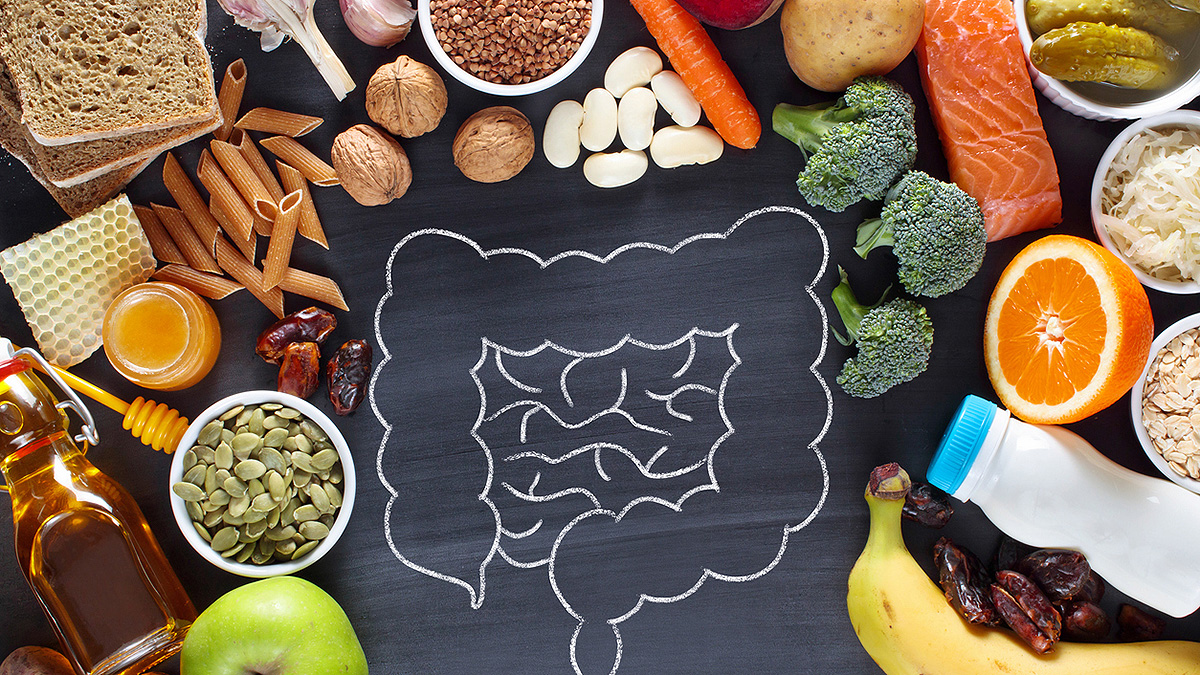Ulcerative colitis (UC) is a rollercoaster that's difficult to anticipate. You're doing fine one day, and the next, a flare-up emerges with pain, nonstop bathroom trips, and exhaustion. As someone who lives with this chronic inflammatory bowel disease (IBD), I've found that what you introduce into your body—and what you avoid—can be a game-changer. Add in some promising supplements and a little professional help, and you’ve got a solid game plan for keeping symptoms in check. Let’s dive into the foods to skip and savor during flares, plus explore curcumin, Vitamin D3+K2, colostrum, and how a Medicaid-covered nutritionist can be a game-changer.
Related: Dealing with Psoriatic Knee Arthritis and Bone-on-Bone Knee Pain: Your Friendly Guide
Foods to Steer Clear of During a Flare
When UC flares up, your colon is inflamed and sensitive, so certain foods can make things worse. Here’s what to avoid to keep symptoms from spiraling:
- High-Fiber Stuff: Think whole grains, raw veggies like broccoli, or fruits with skins (like apples). These are tough to digest and can speed up bowel movements. Nuts and seeds? They’re often too gritty for an angry gut.
- Dairy: Milk, cheese, and ice cream can trigger diarrhea or gas, especially if you’re lactose intolerant, which is super common with UC.
- Spicy Foods: That fiery salsa might sound tempting, but capsaicin in peppers can irritate your colon. Some folks tolerate spice okay, but during a flare, it’s safer to skip it.
- Sugary Treats: Cookies, soda, and candy pull water into your intestines, worsening diarrhea.
- Greasy Foods: Fried chicken, burgers, or buttery sauces can ramp up inflammation and mess with digestion.
- Caffeine and Alcohol: Coffee, energy drinks, or a glass of wine can stimulate your bowels, making diarrhea and dehydration worse.
A food diary is your best friend here. Jot down what you eat and how you feel afterward to spot your personal triggers. It’s like detective work for your gut.
What to Eat to Soothe a Flare
During a flare, you want foods that are gentle, easy to digest, and packed with nutrients to keep you strong. Here’s what works:
- Low-Fiber Fruits: Bananas, applesauce, or canned peaches (no skins or seeds) are kind to your gut. Skip sugary fruit juices, though—they can make diarrhea worse.
- Cooked Veggies: Carrots, zucchini, or mashed potatoes (no skins) are soft and nutrient-rich. Cook them until they’re almost mushy to make digestion a breeze.
- Refined Grains: White rice, white bread, or plain pasta are low-fiber and easy on your system. Pro tip: toss a pinch of turmeric into rice for a subtle anti-inflammatory boost.
- Lean Proteins: Think grilled chicken, baked salmon (hello, omega-3s), eggs, or tofu. These rebuild tissue without the heaviness of fatty meats.
- Probiotic Foods: If dairy’s okay for you, plain yogurt with live cultures can nudge your gut bacteria in a good direction. Go for unsweetened to avoid sugar spikes.
- Hydration Heroes: Water, herbal teas like chamomile, or low-sugar electrolyte drinks keep you hydrated. Aim for light yellow pee to know you’re on track.
Try eating smaller meals, maybe 4–6 a day, and chew slowly. It’s easier on your gut and helps your body absorb nutrients when you’re already worn out.
Curcumin: The Turmeric Trick for UC
Curcumin, the magic ingredient in turmeric, is getting a lot of buzz for UC. It’s anti-inflammatory, fights oxidative stress, and might even balance your gut microbiome. Here’s the scoop based on recent research:
- What Studies Say: A 2021 analysis of seven trials showed curcumin, paired with meds like mesalamine, tripled remission rates compared to meds alone. Another study found fewer relapses when people took curcumin daily for up to a year.
- How Much to Take: Most trials use 1–3 grams a day, split into two or three doses. For example, one study gave 3 grams daily with mesalamine, and patients saw big improvements in symptoms.
- Absorption Hack: Curcumin doesn’t absorb well on its own, but pairing it with black pepper’s piperine can boost it by 2,000%. Some supplements use fancy lipid or nanoparticle tech for even better results.
- Is It Safe?: Curcumin’s generally safe, with a daily limit of about 0–3 mg per kg of body weight, per global health guidelines. Too much might cause nausea, so start low and talk to your doctor.
You can sprinkle turmeric in soups or smoothies for a mild effect, but supplements give you a precise dose for real impact. Just don’t expect miracles overnight—research is still ongoing, and we need bigger studies.
Getting a Nutritionist on Medicaid
UC diets aren’t one-size-fits-all. A registered dietitian (RD) who knows IBD can create a plan that fits your triggers, keeps you nourished, and helps you stay in remission. If you’re on Medicaid, you might be able to get this help covered:
- What’s Covered: Many Medicaid plans cover medical nutrition therapy (MNT) for chronic conditions like UC, especially with a doctor’s referral. This includes diet planning, trigger identification, and check-ins to tweak your plan. Call your Medicaid office to confirm what’s available.
- Why It Helps: An RD can suggest diets like Mediterranean or low-FODMAP, balance your fiber, and make sure you’re getting enough protein and vitamins. They’ll also stop you from cutting out too many foods, which can lead to deficiencies.
- How to Find One: Ask your gastroenterologist for a referral or check out the Crohn’s & Colitis Foundation for RD listings. Some offer telehealth, which is great if you’re in a rural area.
Working with an RD keeps your diet on point as your symptoms shift, so you’re not guessing what works.
Vitamin D3+K2: A Power Duo for UC
Low Vitamin D is super common in UC, thanks to inflammation and less time in the sun. Pairing D3 with K2 can help your immune system and protect your bones, which is key if you’re on steroids.
- Why It Matters: A 2019 study gave UC patients 2,000 IU of D3 daily for 12 weeks, and they reported better quality of life and fewer symptoms. D3 helps your body absorb calcium, while K2 makes sure it goes to your bones, not your arteries.
- How Much?: Start with 2,000 IU of D3 daily, aiming for blood levels above 75 nmol/L. Add 100–200 mcg of K2 (MK-7 form) daily. Get your levels tested to avoid overdoing it, as too much D3 can harm your kidneys.
- Food Sources: You’ll find D3 in salmon, egg yolks, or fortified milk (if you tolerate it). Supplements, like D3 drops with oil, absorb better.
Check with your doctor, especially if you’re on meds like sulfasalazine, which can mess with nutrient absorption.
Colostrum: A Gut-Healing Helper?
Leaky gut—when your intestinal lining lets bacteria and toxins sneak through—is a big deal in UC. Colostrum, the nutrient-packed fluid cows produce right after giving birth, might help patch things up.
- How It Works: Colostrum is loaded with antibodies, growth factors, and lactoferrin, which could strengthen your gut barrier and calm inflammation. Early studies, mostly in animals, suggest it supports gut repair.
- What We Know: Human research is thin, but a 2023 review hinted colostrum might balance your gut microbiome. Anecdotally, some UC folks swear by it.
- Dosing and Tips: Try 1–10 grams daily in powder or capsules, starting small to see how your gut reacts. Pick low-lactose brands to avoid flare triggers, and talk to your doctor since colostrum isn’t tightly regulated.
It’s not a cure-all, but colostrum could be a piece of your gut-healing puzzle alongside diet and meds.
Related: Your Go-To Korean Skincare Guide for Dry, Acne-Prone Skin in Your Late 20s
Wrapping It Up
Living with ulcerative colitis isn’t easy, but you’ve got tools to make it more manageable. Skip trigger foods like dairy and spice during flares, and lean on gentle options like bananas, white rice, and lean proteins. Curcumin, Vitamin D3+K2, and colostrum are worth exploring with your doctor’s okay, and a Medicaid-covered nutritionist can tailor a diet just for you. Keep a food diary, stay hydrated, and don’t be afraid to ask for help. With some trial and error, you can find what works and feel more in control of your UC journey.


.png)

.png)

.jpg)

.jpg)
.png)





